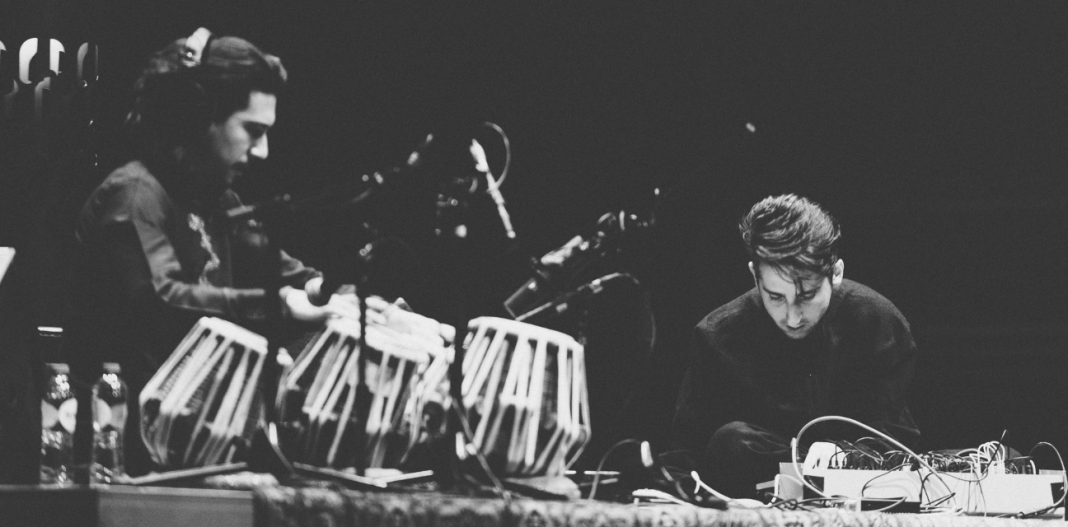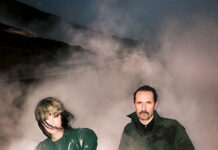What was the conceptual idea behind it?
The way we record music now, it’s a blip in history. And it’s a capitalist, sort of bourgeoise development that the people who own the talent and the people who hold the capital just want the recording done in an efficient, repeatable factory kind of way. That’s why that technology proliferated. Obviously there are upsides to it, from what Brian Eno or the Beatles did with studios back in the day through to the Oneohtrix Point Never records, which couldn’t exist without digital timeline editing. But for me, I started to think about all the stuff that’s lost in that process. And the politics of it! This is folk. It’s not bourgeois capitalist music.
Was it hard to sell your musicians on the concept?
They were happy, actually. Because it meant that they didn’t have to come back and do overdubs. But they were giving it everything, trying to just nail everything through it. And that felt quite relaxed in the sessions. We’d play a couple of times and be happy and then just try one more just to be sure. (laughs)
How do you see your role within the band?
I realised that the role I have to take is bandleader. We went to see [US avant-garde jazz alto saxophonist] Marshall Allan at Café OTO [in East London]. We got in the second day of two dates, and it seemed like he was in a bad mood when he came on stage. Thirty minutes in, every brass player would just go off into little solo lines, but he shut it down, properly shouting: „No!“ And [my manager] Gemma was like, “can you do this?”, because I’m not really that guy. (laughs) I’m learning, but also, I don’t need to be tough with this group. It seems like everyone gets it. The music forms the backbone that tells them what to do and what not to do.
Video: Catching up with James Holden – Le Guess Who? & de Volkskrant
Since we’re mostly talking about jazz and playing in a band here, I’m curious, do you sometimes miss playing a peak time DJ set?
Not really, no. (thinks briefly) Yeah, no. (laughs) It’s very difficult, especially for me who doesn’t like peak time records anyway. I stopped DJing, because I just couldn’t hear it anymore. And then gradually it has crept back into my life. I just needed to have a gap. But now I’d have to give up so much to be able to DJ like I did. I can’t see it happen.
Was there a moment when you decided to give up DJing?
I realised I couldn’t do the live thing and the DJing at the same time. The day I realised that was when I had a weekend with a live gig and a Berghain DJ set. I left my record bag at home. We had to get someone to fly out to Berlin with it. That was stressing me out. I didn’t have room in my head. In order to treat DJing with respect, I have to work really hard. And I felt like I couldn’t do both. So I decided to do a tour and make my decision. By the time the tour ended, it wasn’t a decision anymore. I remember playing one of my last DJ gigs and I finished it with this Khan & Julee Cruise record, „Say Goodbye“, and I remember thinking, yeah, actually, I’m done.




